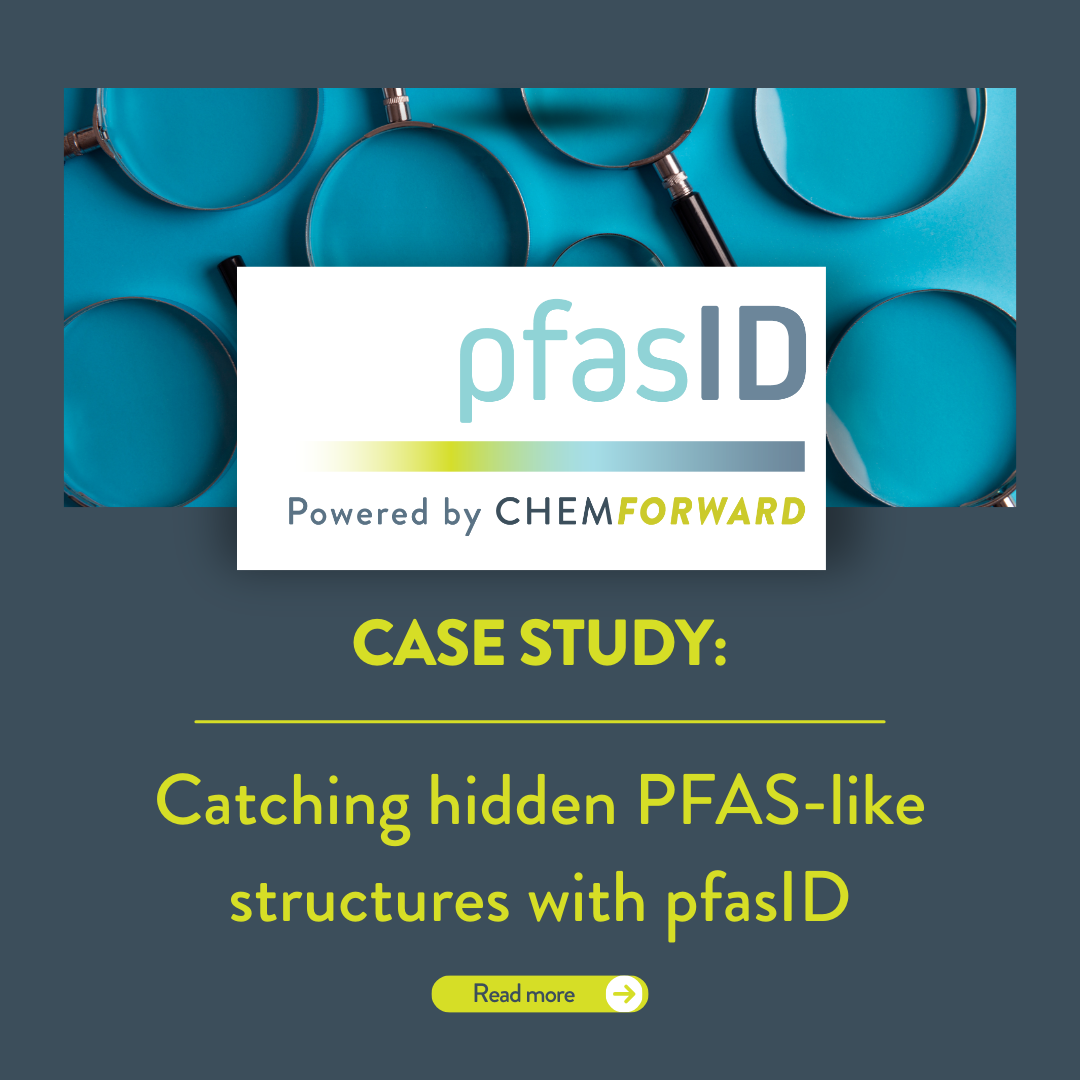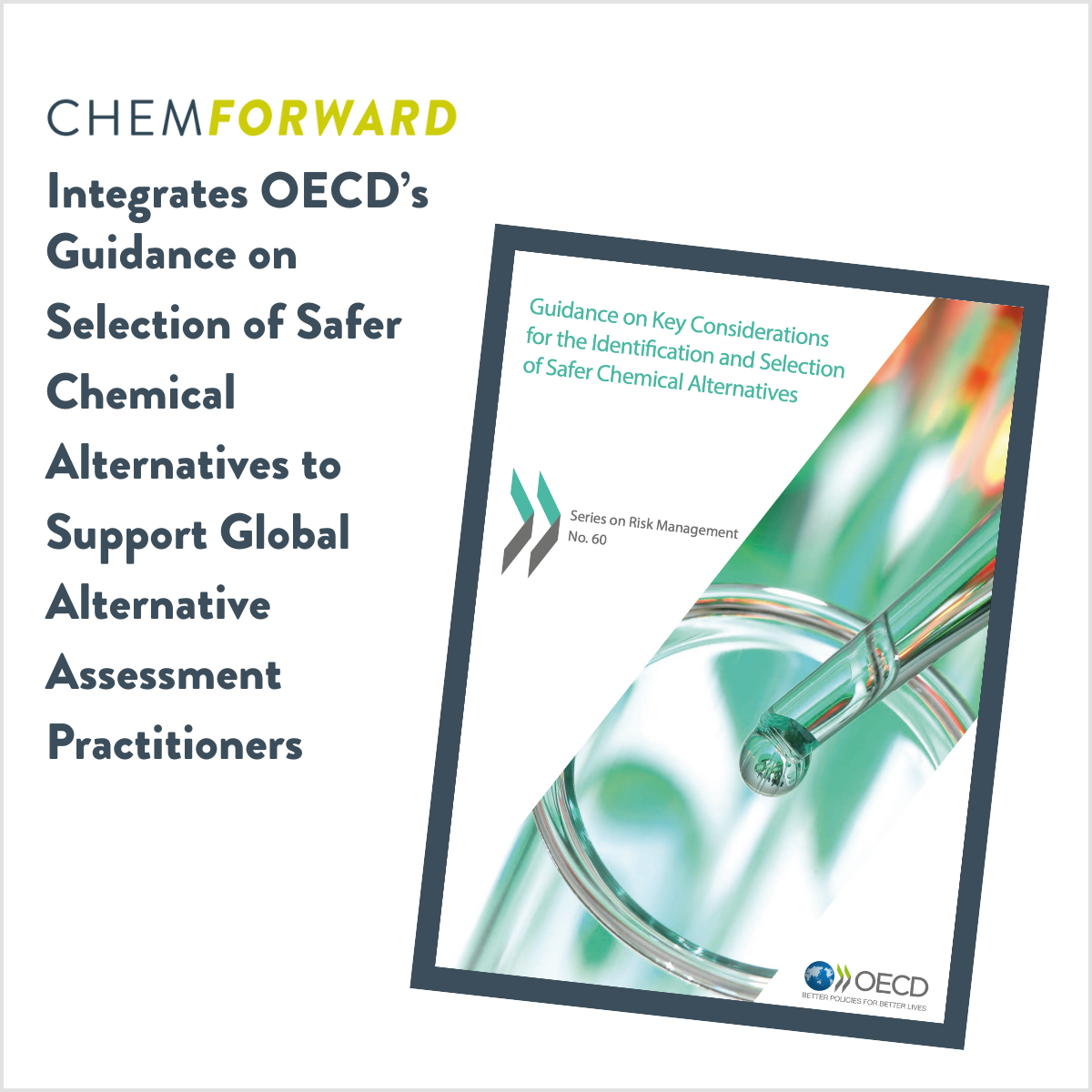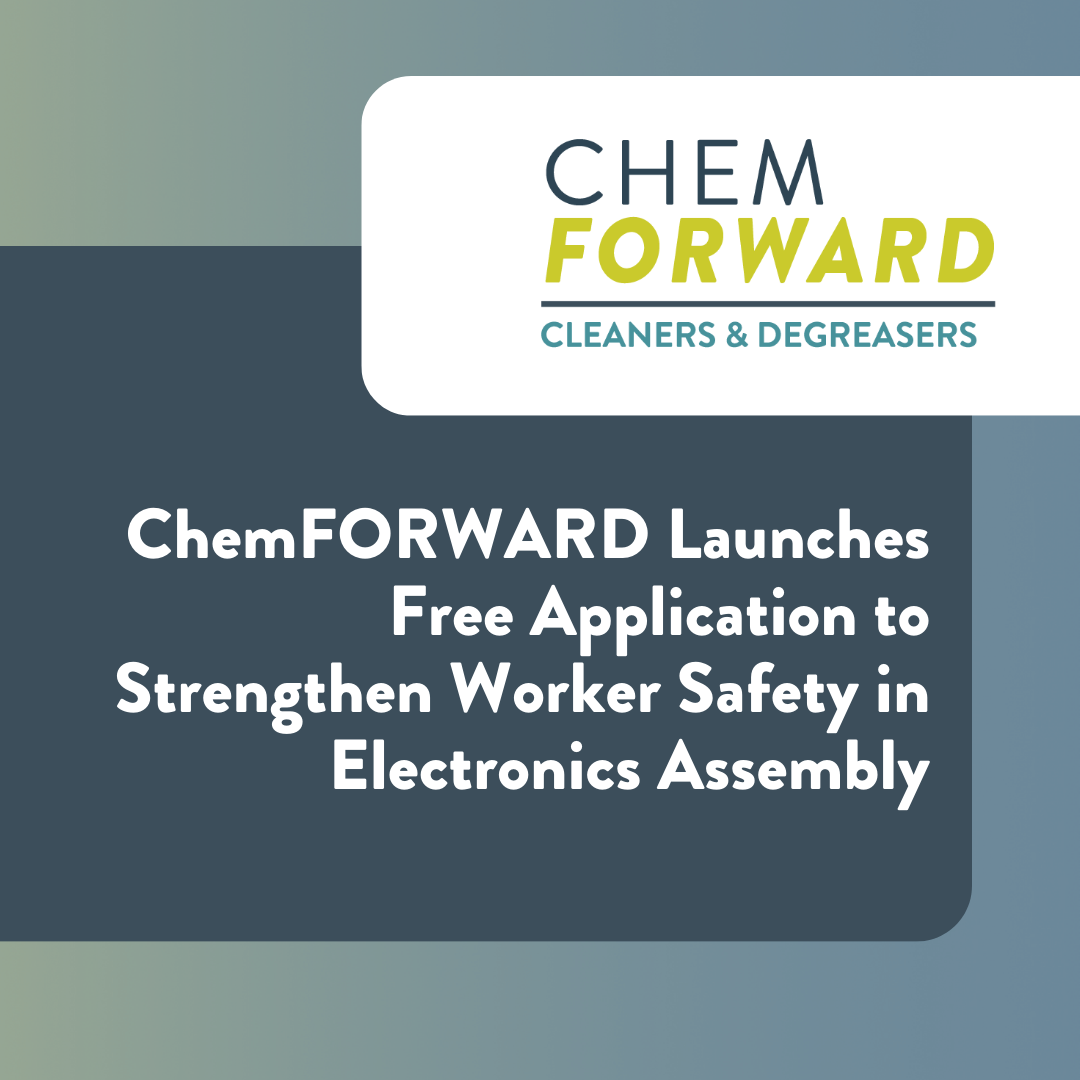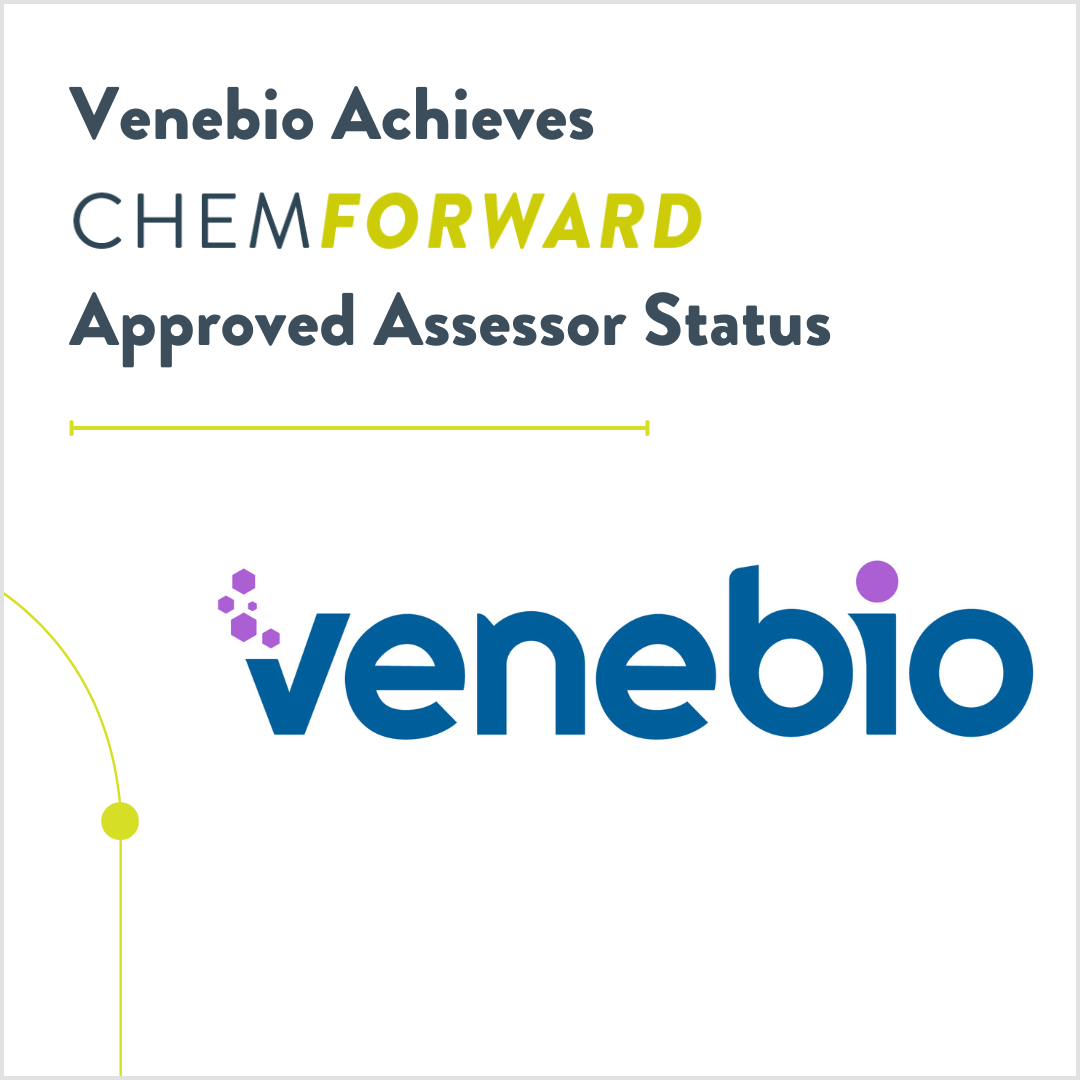CASE STUDY: Catching hidden PFAS-like structures with pfasID
PFAS management is often treated as a matter of compliance: check the lists, confirm whether a chemical appears, and move forward if it doesn’t. But as PFAS definitions evolve and regulatory frameworks struggle to keep pace with chemical innovation, list-based screening alone is no longer sufficient to prevent risk.
The Power of Knowing: Is PFAS Identification 70% of the Solution?
The global challenge of Per- and Polyfluoroalkyl Substances (PFAS)—the persistent "forever chemicals"—can feel overwhelming.
They are ubiquitous and persistent, and removing them from the environment is often complex and prohibitively expensive.
What if the most powerful step toward a cleaner future isn’t years of invention and innovation - but a simple, strategic action at the very beginning of your journey?
Preventing "Regrettable Substitutions": ChemFORWARD to Lead Key Session at SETAC 2025
Preventing "Regrettable Substitutions": ChemFORWARD to Lead Key Session at SETAC 2025
Planet Tracker Report Highlights ChemFORWARD's Vital Role in Driving Safer Plastic Additives
We're excited to announce the release of the new Planet Tracker report, "Toxic Additives: Analysing Product Portfolio Risk," which underscores the critical role of ChemFORWARD in bringing much-needed hazard transparency and safer alternatives to the plastics value chain.
Beauty & Personal Care Leaders Release 2025 Report Showing Progress Toward Safer Chemistry, Yet Urgent Gaps Remain
The Know Better, Do Better (KBDB) Collaborative, an industry-led initiative managed by ChemFORWARD, today released the 2025 Beauty & Personal Care Ingredient Intelligence Report — a collaborative, data-driven benchmark for ingredient safety in beauty and personal care. Composed of members including Sephora, Ulta Beauty, The Honest Company, Credo Beauty, Counter, Inolex, and Dow, the KBDB Collaborative represents a rare coalition of retailers, brands, and suppliers working together to create the first standardized, data-driven benchmark for ingredient safety.
PPRC x ChemFORWARD
The Pacific Northwest Pollution Prevention Resource Center’s (PPRC) Certification Assistance Program (CAP) and ChemFORWARD partnered to add new ingredients to the U.S. EPA Safer Choice Ingredients List (SCIL).
ChemFORWARD Integrates OECD’s Guidance on Selection of Safer Chemical Alternatives to Support Global Alternative Assessment Practitioners
Today, ChemFORWARD announced new enhancements to their web-based platform that operationalize and integrate the application of OECD’s Guidance on Key Considerations for the Identification and Selection of Safer Chemical Alternatives.
ChemFORWARD Launches Free Application to Strengthen Worker Safety in Electronics Assembly
Apple-Backed Initiative Unveils Supply Chain Transformation Tools to Accelerate Global Shift to Safer Cleaners and Degreasers
August 20, 2025 – Cleaners and degreasers are one of the highest use materials in electronics assembly. It is so critical that they be as safe as possible in their formulation and usage. In a bold step to safeguard the health and well-being of hundreds of thousands of workers in the global electronics assembly industry, ChemFORWARD, in partnership with Apple, is proud to launch a dedicated application for cleaner and degreaser ingredient optimization. The free, web-based tool will help formulators rapidly replace high-hazard chemicals with safer, vetted alternatives thus reducing worker exposure.
ChemFORWARD Announces Chemical Alternatives Finder: Bridging the Gap Between Hazard Data and Functional Alternatives
ChemFORWARD is excited to announce the launch of its new Chemical Alternatives Finder. This significant enhancement will empower ChemFORWARD’s users to move beyond hazard identification and seamlessly integrate functionality into their chemical selection processes.
ChemFORWARD Welcomes Hong Lin as a Program Manager - Industry Collaboratives
ChemFORWARD is proud to announce that Hong Lin has joined our team as a Program Manager - Industry Collaboratives. With her deep expertise in regulatory science and safer chemistry, Hong will be a key leader in driving the growth and impact of our cross-sector collaboratives.
ChemFORWARD Expands SAFER™ Verified Program: Opportunity for Chemical Suppliers to Showcase Safer Ingredients
ChemFORWARD, a science-based nonprofit advancing safer chemistry, today announced the expansion of its SAFER™ trade name ingredient registry. This expansion follows the success of its initial pilot program and incorporates industry-specific criteria, ensuring that safer alternative chemicals are identified in alignment with the unique safety needs of sectors such as beauty, electronics manufacturing, apparel, and more.
Article in IPC Community Magazine: Future-Proofing Electronics
"By embracing collaboration and leveraging tools like the Chemical Hazard Data Trust and CleanScreen, we can ensure a more sustainable and safer tomorrow."
New App Simplifies PFAS Identification and Risk Management
ChemFORWARD announced the launch of pfasID, a free web-based tool that simplifies the process of identifying per- and polyfluoroalkyl substances, more commonly known as PFAS. These “forever chemicals” are highly persistent in the environment and pose significant risks to human health.
ChemFORWARD Updates Chemical Hazard Repository to Align With EPA's SCIL 2024 Revisions
DURHAM, NC - February 21, 2025 - ChemFORWARD has updated its Chemical Hazard Data Trust to reflect the recent changes to the Environmental Protection Agency's (EPA) Safer Chemical Ingredients List (SCIL).
REGISTRATION NOW OPEN: From Circular Pollution to Circular Solutions
To win consumer and investor confidence in circularity, we need to systematically eliminate chemicals of concern in the materials used in everyday products.
Change Chemistry, ChemFORWARD, and Safer Chemistry Impact Fund are collaborating to start this conversation in earnest by convening this dedicated workshop to share progress on safer chemistry and identify opportunities to accelerate safe and sustainable design.
ChemFORWARD Wins Harvard’s Roy Award for Environmental Partnership
Chemical Hazard Data Trust Helps Companies Replace Toxic Chemicals with Safer Alternatives to Reduce Human and Environmental Harm
ChemFORWARD Implements New Maintenance Process for Chemical Hazard Data
A significant step forward in maintaining high-quality data that is scientifically accurate, comprehensive, and representative of current research and best practices
ChemFORWARD's Heather McKenney Appointed to California's Green Ribbon Science Panel
ChemFORWARD, a non-profit organization committed to advancing safer chemistry, announced today that Heather McKenney, Science and Safer Chemistry Lead for the organization, has been appointed to the prestigious Green Ribbon Science Panel (GRSP) by the California Department of Toxic Substances Control (DTSC). The GRSP is composed of preeminent scientists and technical experts who provide advice and input on critical green chemistry and chemicals policy matters to support the Safer Consumer Products (SCP) Program. The first meeting for McKenney will take place in Sacramento, California on December 10th and 11th.
Safer Ingredients Make Strides in the Beauty Industry, but Challenges Remain
New report quantifies the use of safer chemistry in consumer products, moving beyond “bad lists” to set a new standard for accountability
ChemFORWARD released the first "Beauty & Personal Care Ingredient Intelligence Report.” The report, which analyzed 8,500 products, showcases the groundbreaking collaboration among major beauty retailers, brands, and ingredient suppliers, including Sephora, Ulta Beauty, Credo, Beautycounter, The Honest Company, Inolex, and Dow, to define a standard for safer chemistry and measure progress.
Venebio Joins ChemFORWARD’s Approved Assessor Program
ChemFORWARD expands its Approved Assessor Network with the addition of Venebio, a leading provider of scientific and regulatory support for product safety. Their team of experts provides end-to-end safety support from raw ingredient safety assessments to post-market surveillance. The growth of the Assessor Network highlights the growing demand for comprehensive chemical hazard assessments to inform safer substitution across multiple sectors.




















